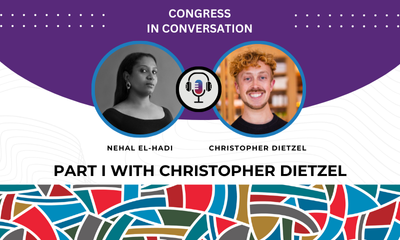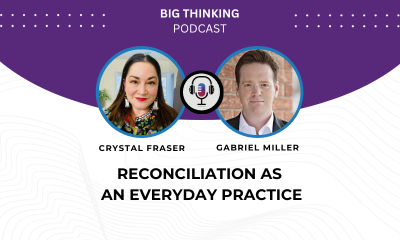Big Thinking at Congress 2022
Beyond “crimes of insolidarity”: Considerations for a transition based on economic and social rights
The COVID-19 pandemic has laid bare the interrelationship between civil and political rights, and economic and social rights (ESRs). As we have seen, the widespread attacks on the right to health care that have persisted with total impunity for the past thirty years in Quebec have directly affected the enjoyment of the population’s freedoms and right to security (lockdowns, curfews, scaling back). We have also seen that systemic infringements on the right to an adequate standard of living have made the population more vulnerable, while increasing the risks of transmission of the virus.
In this Big Thinking lecture, Christine Vézina, associate professor at Université Laval’s Faculty of Law, contends that any transition to a post-COVID-19 world must be based on economic and social rights. She argues that these violations of human rights result from deliberate choices made by governments and reflect a true “crime of insolidarity” that makes society vulnerable. What are these rights? What is their status in Canadian and Quebec law? What are the barriers to their full enjoyment? And how can they restore the universalist value of solidarity? These questions will help us reflect on the scope of ESRs to build a transition to a “post-insolidarity” world.

Congress in Conversation - Part I with Christopher Dietzel
← Big Thinking Podcast homepage Next episode → Introduction | About the guest | Christopher Dietzel's Research at Congress | Transcript | Follow us Introduction Welcome to Congress in Conversation, a special series presented by the Big Thinking...

Reconciliation as an everyday practice
← Big Thinking Podcast homepage Next episode → Description | About the guest | Transcript | Follow us Description In 2015, the Truth and Reconciliation Commission released its First Report which documented the experiences of more than 6,000...

Abortion in Canada: how secure is our right?
← Big Thinking Podcast homepage Next episode → Description | About the guest | Transcript | Follow us Description With the overturning of Roe v. Wade by the U.S. Supreme Court last year and recent bans on abortion procedures south of the border, it...
